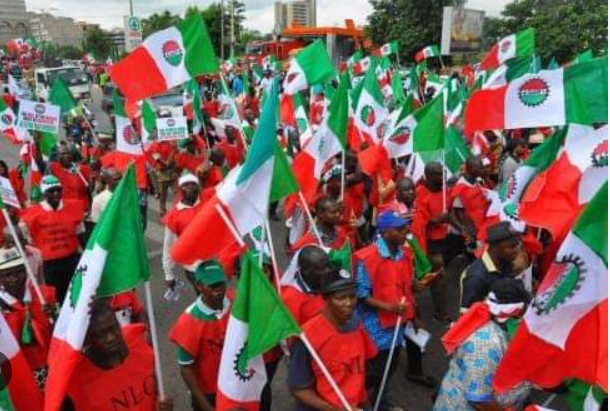By Victor Itodo Abuh
FOR MANY years, unions and employees in Nigeria have used labour strikes as a means of expressing their discontent and pressing the government to act.
Also called industrial actions, strikes have historically been a useful tool for bringing attention to urgent issues, such as rising gasoline prices and inadequate wages.
They are a strong tool, but they are not always the best or only way to get the attention of the government.
Indeed, relying too much on strikes can cause social discontent, economic disruptions, and a vicious cycle of conflict that eventually undermines the same objectives that strikes are meant to accomplish.
It’s time to look into different advocacy and negotiating tactics that can lead to more long-lasting and beneficial results.
One of the most effective ways to address grievances is through open and continuous dialogue.
Establishing a robust framework for regular discussions between government representatives and labour unions can preempt many of the issues that lead to strikes.
By fostering a culture of negotiation and compromise, both parties can work together to find mutually beneficial solutions before tensions reach a boiling point.
Negotiation allows for a more nuanced understanding of each side’s constraints and priorities, paving the way for more realistic and enduring agreements.
Civil society organizations and labor unions can focus their energies on advocating for legislation.
Long-lasting change can be achieved by collaborating with legislators to write and enact legislation that upholds workers’ rights, guarantees equitable pay, and enhances working conditions.
This strategy not only resolves pressing issues but also institutionalizes safeguards that will ultimately benefit workers.
Unions can establish coalitions with politicians who share their views and use the legislative process to get public support for significant reforms.
Raising public awareness about workers’ issues can be a powerful tool in gaining government attention without resorting to strikes.
Through media campaigns, public demonstrations, and social media outreach, unions can highlight their concerns and build widespread support.
Public opinion can be a formidable force in pressuring the government to act, especially in democratic settings where leaders are accountable to the electorate.
Educating the public about the broader implications of workers’ demands can also garner sympathy and solidarity from other sectors of society.
Building coalitions with other organizations, such as non-governmental organizations (NGOs), community groups, and international bodies, can amplify the impact of labour movements.
Strategic alliances can bring additional resources, expertise, and political pressure to bear on the government.
For example, partnering with human rights organizations can frame labour issues within the broader context of social justice, making it harder for the government to dismiss or ignore demands.
When dialogue and negotiation fail, legal action can be a viable alternative to strikes. Labour unions can take their grievances to court, challenging unfair practices and seeking judicial remedies.
While this approach can be time-consuming and expensive, it offers a peaceful and structured means of resolving disputes.
Court rulings can set important precedents, creating legal standards that protect workers’ rights and hold the government accountable.
Finally, unions must be willing to innovate and adapt their strategies in response to changing circumstances.
The landscape of labour relations is constantly evolving, and so too should the tactics employed by workers and their representatives.
By staying flexible and open to new ideas, unions can remain effective advocates for their members without resorting to strikes as a first or only resort.
While strikes have historically been a powerful tool for gaining government attention in Nigeria, they are not the only means available.
Dialogue, legislative advocacy, public awareness campaigns, strategic alliances, judicial interventions, and innovative approaches can all play a crucial role in advancing workers’ rights and achieving sustainable change.
By diversifying their strategies, labour unions can build a more constructive and resilient movement that benefits not only their members but society as a whole.
Victor Itodo Abuh, a young columnist writes in from Abuja, victorabuh84@gmail.com
At JKNewsMedia, our dedication to delivering reliable news and insightful information to our cherished readers remains unwavering. Every day, we strive to provide you with top-notch content that informs and enlightens. By donating to JKNewsMedia, you directly contribute to our mission of delivering quality journalism that empowers and informs. Your support fuels our commitment to bringing you the latest updates and in-depth analysis. Let's continue to uphold the highest standards of journalism and serve our community with integrity and dedication. Thank you for being a part of the JKNewsMedia family and for your ongoing support.





